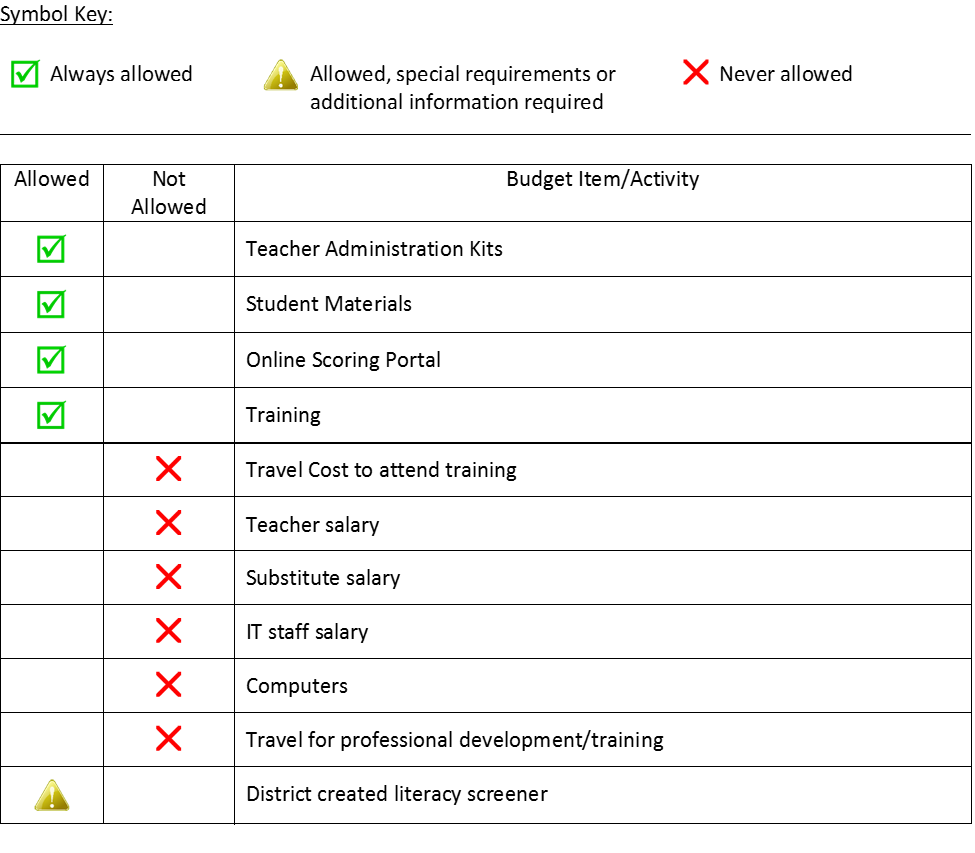A. It is highly recommended that classroom teachers administer the screening to each student. Given that classroom teachers know their students better than anyone else in the building, the most accurate and informative results will be obtained when the classroom teacher administers all parts of the screening.
A. DPI does not have a state mandated screening window. Districts are free to establish their own screening window. Keep in mind that some vendors may utilize a screening window and have established benchmarks based on students being screened during the vendor-prescribed window.
A. Wis. Stats. 118.016 does not require districts to report data from the assessment of reading readiness to the DPI. The statute does require that the results of the assessment be shared with parents or guardians.
Q. What steps do I need to take to make our PALS or MAP district data available in WISEdash for Districts?A. Starting with the 2021-22 school year, districts wishing to have their PALS or MAP local assessment data uploaded to WISEdash for Districts can complete a single, unified data sharing agreement in the WISEadmin Portal. Directions for completing the data sharing agreement can be found at Local Assessment Data Use Information.
A. Districts wishing to have their Renaissance Star assessments uploaded to WISEdash for Districts will follow the Star Data Sharing Process.
A. In order for DPI to display data from a locally selected screener in WISEdash, a data sharing agreement must be in place. Data sharing agreements are in place for PALS, MAP and Star screeners and WISEdash dashboards have been built. No other data sharing agreements are in place at this time.
A. There is not and will not be a list of approved assessments.
A. Wis. Stats. 118.016 requires that the assessment of reading readiness be an appropriate, valid, and reliable assessment of literacy fundamentals (including phonemic awareness and letter sound knowledge). There is nothing in the statute that precludes a district from selecting multiple assessments to comply with this statute (such as one assessment for 4K and 5K and a different assessment for grades 1 and 2 or a Spanish-language assessment for students engaged in literacy instruction in Spanish).
A. Districts are allowed to create and use their own reading readiness assessments to fulfill the requirements of Wis. Stats. 118.016. District created assessments are required to be appropriate, valid and reliable indicators of literacy fundamentals which evaluate whether pupils possess phonemic awareness and letter sound knowledge.
A. There are no statutory provisions allowing families to opt-out or the Reading Readiness assessments. However, districts cannot mandate that a student participate in these assessments if a parent or guardian refuses.
A. The statute requires that literacy screener results be shared with parents/guardians. Districts can choose their preferred method of communicating these results to parents/guardians.
A. If a student's score on the literacy screener indicates the student is at risk of reading difficulty, schools and districts are required to provide interventions or remedial services. Wis. Stats. 118.016 and Wis. Stats. 121.02(1)(c) state that the interventions or services provided to the student shall be scientifically based, and shall address all areas in which the student is deficient, in a manner consistent with the state standards in reading and language arts.
A. Students who are identified as at risk of reading difficulty should continue to receive high-quality core instruction. In addition, targeted small-group and individual interventions may be necessary based on the obtained results. Teachers are also encouraged to work with other professionals (other classroom teachers, reading specialists, special education teachers, ELL teachers, psychologists and principals) to develop intervention plans. It may be helpful to visit the RtI Center website to develop a tiered system of instruction and support.
A. Source 630, Project 522 Appr 115.
A. In the spring of each school year, DPI will send a reimbursement request form to the District Assessment Coordinator in each district. DACs should complete the form by the deadline and submit it to DPI. DPI will collect reimbursement requests from all districts and determine if there is enough money in the appropriation to fulfill each request. If there is enough money, all districts will receive their full request. If there is not enough money to fulfill each request, DPI will prorate payments to districts.
A. DPI will deposit reimbursements into district accounts prior to the end of the fiscal year for which the request was submitted.
A. DPI will reimburse districts for the cost of training materials, student materials, scoring guides, online score portals, as well as teacher training costs (see table below).
A. Teacher salary, IT staff salary, substitute salary, computers, travel costs to attend training.
